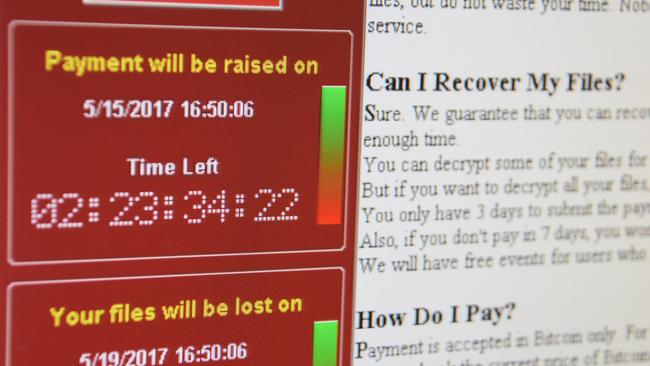Cybercrime gang hacks thousands of medical files and demands ransom from Melbourne hospital
Cyber criminals hacked into patient medical files, holding data for ransom for weeks in an attack launched from malware from Russia or North Korea.
National
Don't miss out on the headlines from National. Followed categories will be added to My News.
Car maker Toyota and a not-for-profit hospital in Melbourne have been targeted in cybercrime hacking attacks.
Toyota Australia this morning said it was the victim of an attempted cyber attack, but believes no employee or customer data was taken.
The company said it has no details about the origin of the attack and the threat was being managed by its IT department.
“Toyota Australia can confirm it has been the victim of an attempted cyber attack,” a company spokesman said in a statement on Thursday.
“At this stage, we believe no private employee or customer data has been accessed.”
The spokesman said the company was working with international cyber security experts to get its systems up and running again as soon as possible.
“We apologise for any inconvenience caused and thank customers for their patience.”
This comes after reports that a gang of hackers had broken into the medical files of Melbourne’s Cabrini Hospital and demanded a ransom after scrambling the data of about 15,000 patients.
The hospital has been unable to access the files for weeks after the cybercrime syndicate used malware to cripple its server and demanded a cryptocurrency payment to decrypt the data, The Age reported this morning.
The malware is believed to have originated from Russia or North Korea, but the identity of the criminals hasn’t been revealed. The hacking is now being investigated by Australian security agencies.
The hospital’s files were scrambled and locked by the online gang who demanded a ransom in cryptocurrency.

The hospital paid the ransom and was given a password to unlock the server but remained unable to recover many of the files that contained sensitive patient information.
The compromised information could be used for identity theft and other crimes by the online gang.
During the attack hospital patients were told their files were lost. Some arrived at the hospital in Malvern for appointments the hospital had no record of. Details of the hacking were not explained to patients at the time.
Cabrini is a not-for-profit 832-bed Catholic hospital in Malvern, owned by the Missionary Sisters of the Sacred Heart of Jesus.
Cyber hacking attacks of this kind are often carried out by hackers who identify security loopholes in businesses or organisations and use them to extort money. Hackers will often threaten the trust placed in a business and exchange the compromised data for cash.
Prime Minister Scott Morrison revealed on Monday that all three major parties had been targeted in a cyber attack on federal Parliament.
The computer network servicing Parliament House was hacked in February and the networks of the Liberal, National and Labor parties were all affected. Mr Morrison said the attack was carried out by a “state actor”.
“Our security agencies have detected this activity and acted decisively to confront it. They are securing these systems and protecting users,” Mr Morrison said.
“Now, I do not propose to go into the detail of these operational matters, but our cyber experts believe that a sophisticated state actor is responsible for this malicious activity.”
The Prime Minister said there was no evidence of electoral interference.
Originally published as Cybercrime gang hacks thousands of medical files and demands ransom from Melbourne hospital


